Given the following code snippet:
string body = "blabla";
/* some processing */
itinerary.Propositions.Each(prop =>
{
/* some processing */
body += "looking good";
/* some more processing */
});
Resharper is throwing the "Access on a local closure" error. Now, I've read a lot about this, but so far not a way to avoid the error in situations like this.
So... how can I still use the variable body without having the warning?
